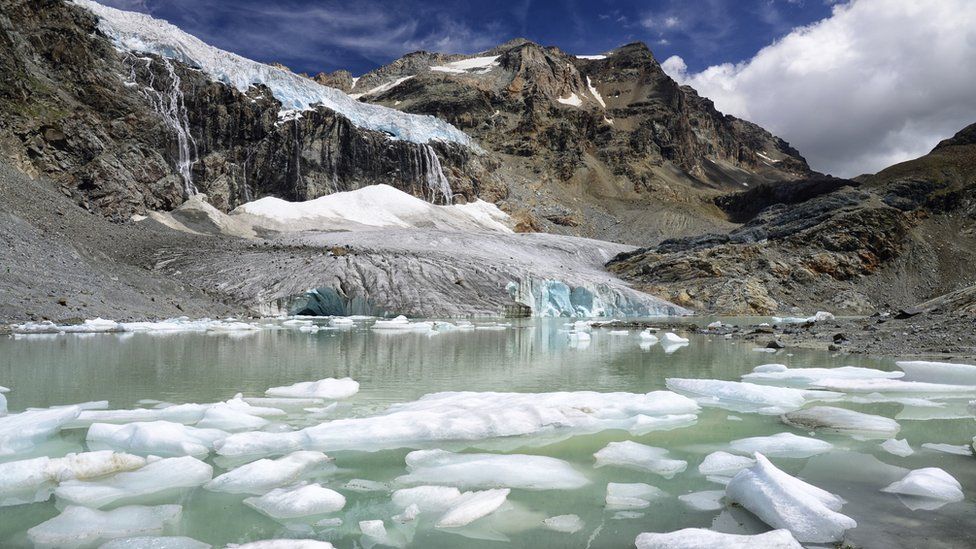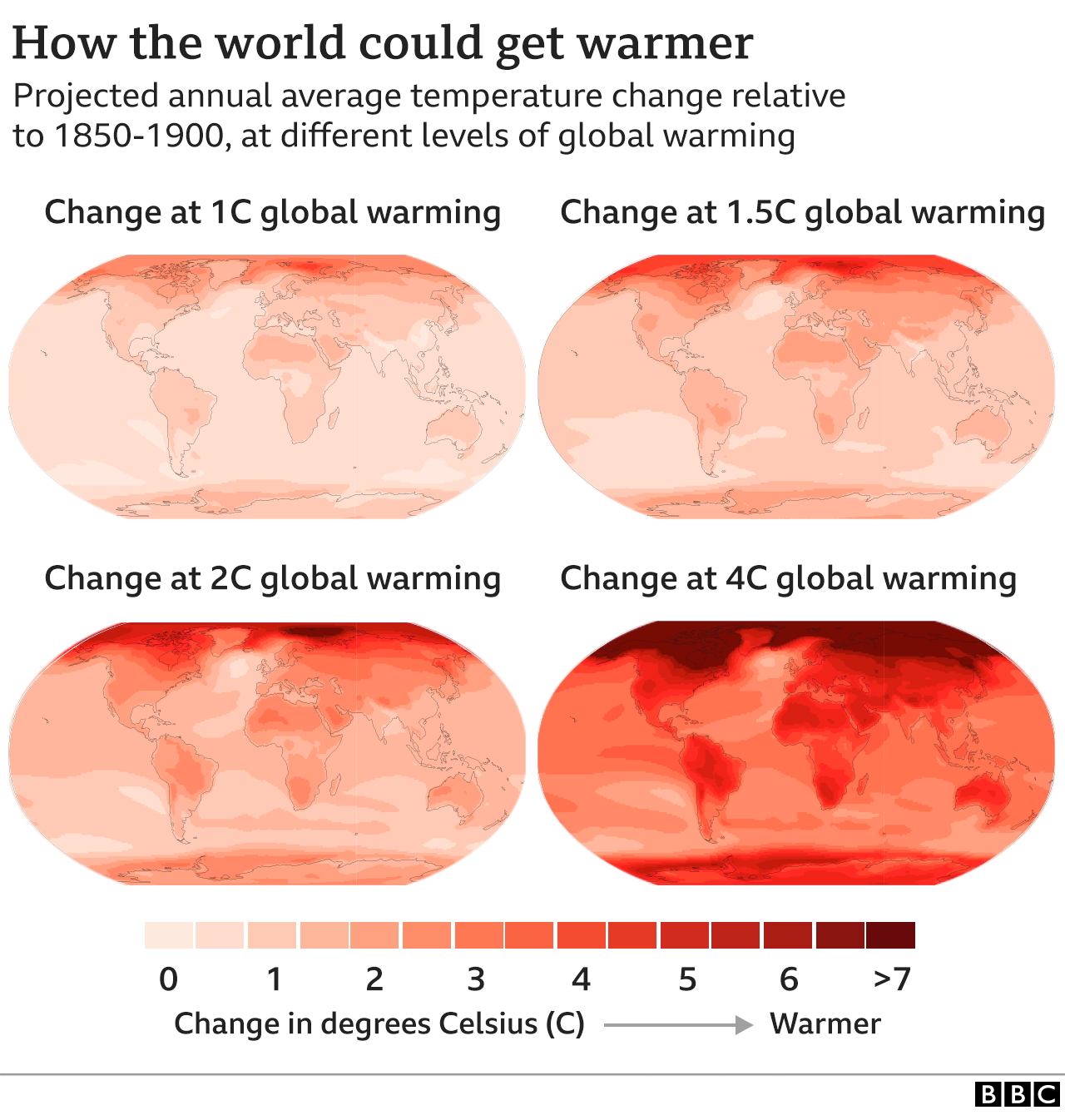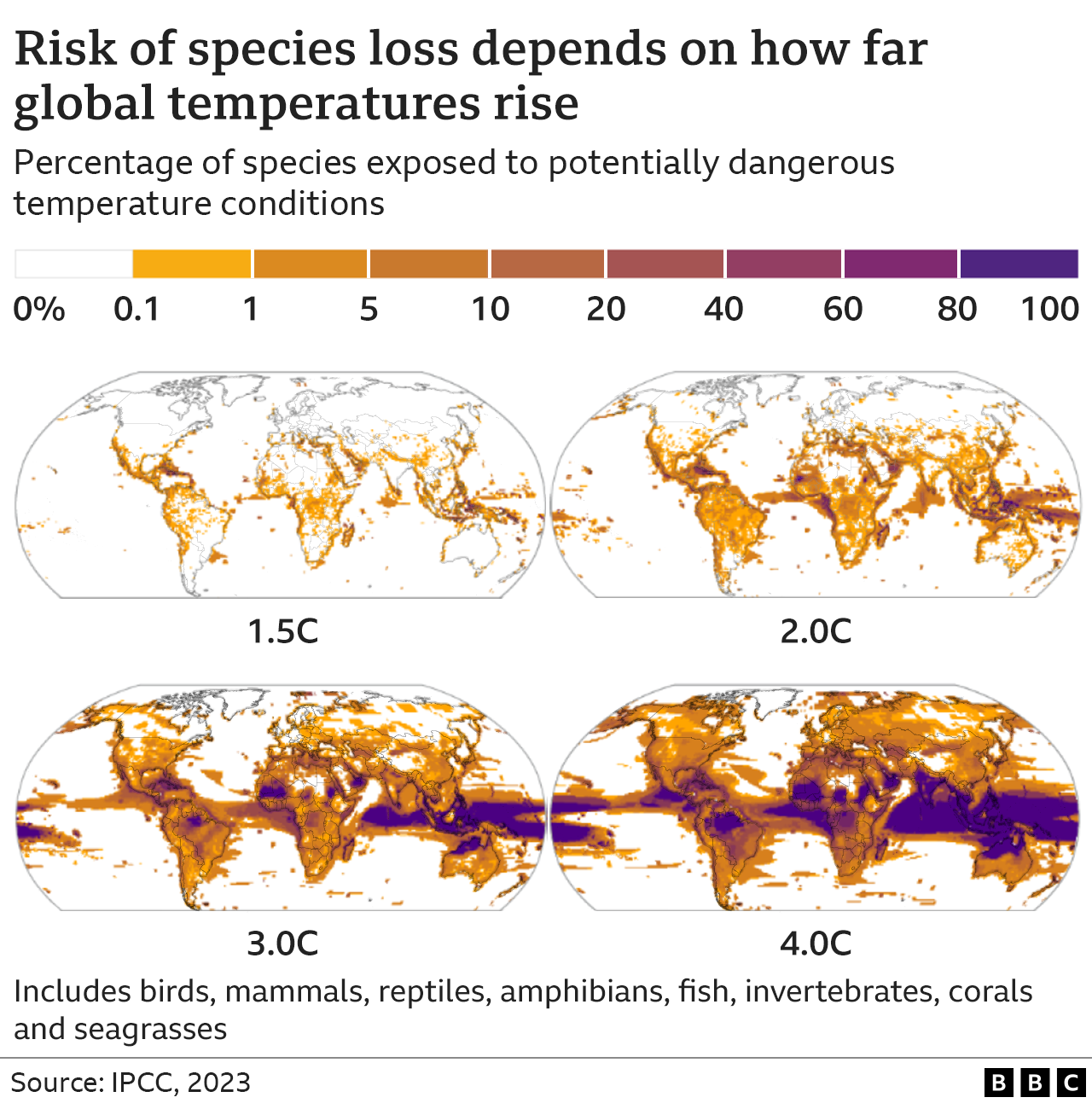UN climate report: Scientists release 'survival guide' to avert climate disaster - 2023
UN climate report: Scientists release 'survival guide' to avert climate disaster

Scientists from the Intergovernmental Panel on Climate Change met in Switzerland where glaciers are melting
UN chief Antonio Guterres says a major new report on climate change is a "survival guide for humanity".
Clean energy and technology can be exploited to avoid the growing climate disaster, the report says.
But at a meeting in Switzerland to agree their findings, climate scientists warned a key global temperature goal will likely be missed.
Their report lays out how rapid cuts to fossil fuels can avert the worst effects of climate change.In response to the findings, UN secretary general Antonio Guterres says that all countries should bring forward their net zero plans by a decade. These targets are supposed to rapidly cut the greenhouse gas emissions that warm our planet's atmosphere.
"There is a rapidly closing window of opportunity to secure a liveable and sustainable future for all," the report states.
Governments had previously agreed to act to avoid global temperature rise going above 1.5C. But the world has already warmed by 1.1C and now experts say that it is likely to breach 1.5C in the 2030s.
The UK government responded that the report makes it clear that countries must "work towards far more ambitious climate commitments" ahead of the UN climate summit COP28 in November.
"The UK is a world leader in working towards net zero, but we need to go further and faster," a spokesperson said.
Small islands in the Pacific are some of the countries expected to be worst hit by climate change.
Responding to the report, the chair of the Alliance of Small Island States Fatumanava-o-Upolu III Dr. Pa'olelei Luteru said: "While our people are being displaced from their homes and climate commitments go unmet, the fossil fuel industry is enjoying billions in profits. There can be no excuses for this continued lack of action." The report from the Intergovernmental Panel on Climate Change - the scientific body that advises the UN on rising temperatures - is agreed on by all governments involved.
Their new study aims to boil down to one slim volume several landmark findings on the causes, impacts and solutions to climate change that have been released since 2018.
It outlines the significant impacts that climate change is having on the world already, and explains that these will get much worse.
By 2100 extreme coastal flooding that used to happen once-a-century is expected to occur at least annually in half of the world's tidal gauge locations - places where sea level recordings are made.

Concentrations of the warming gas CO2 in the atmosphere are at their highest in 2 million years. The world is now warmer than at any time in the past 125,000 years - and will likely get warmer still over the next decade.
"Even in the near term, global warming is more likely than not to reach 1.5C even under the very low greenhouse gas scenario," the report states.
"If we aim for 1.5C and achieve 1.6C, that is still much much better than saying, it's too late, and we are doomed and I'm not even trying," Dr Friederike Otto, from Imperial College, a member of the core writing team for this report, told BBC News.
"And I think what this report shows very, very clearly is there is so much to win by trying."

The synthesis shows that projected emissions of CO2 from existing fossil fuel infrastructure, such as oil wells and gas pipelines, would bust the remaining carbon budget - the amount of CO2 that can still be emitted - for staying under this key temperature threshold.And while not explicitly mentioning new projects like Willow oil in the US or the Cumbria coal mine in the UK, the scientists involved have few doubts about their impact.
"There's not a cut-off day (for fossil fuels), but it's clear that the fossil fuel infrastructure we already have will blow through that carbon budget," Dr Oliver Geden, from the German Institute for International and Security Affairs and a member of the report's core writing team, told BBC News.
"The remaining carbon budget in opening new fossil fuel infrastructure is certainly not compatible with the 1.5C target."
The document argues strongly that going past 1.5C will not be the end of the world as this may only be a "temporary overshoot".
The authors say that they are optimistic that dramatic changes can be achieved rapidly, pointing to the massive falls in the price of energy made from solar and wind.
They also argue that changes driven by consumers in terms of diet, food waste and switching to low carbon transport can achieve significant cuts in emissions from many sectors.
But the report also acknowledges that in addition to getting to net zero emissions as soon as possible, large scale use of carbon dioxide removal technology will be needed.
Some observers have their doubts. "We know what needs to happen, but the carbon removal part and carbon capture and storage ideas are a massive distraction," said Lili Fuhr, from the Centre for International Environmental Law, who attended the approval session.
Responding to the report's call for more urgent action, the UN secretary general is calling for countries to bring forward their plans for net zero by a decade.
"Leaders of developed countries must commit to reaching net zero as close as possible to 2040, the limit they should all aim to respect," he said in a statement. He also calls on the likes of India and China who have announced net zero plans for beyond 2050 to try and bring them forward by a decade as well.




Recent comments